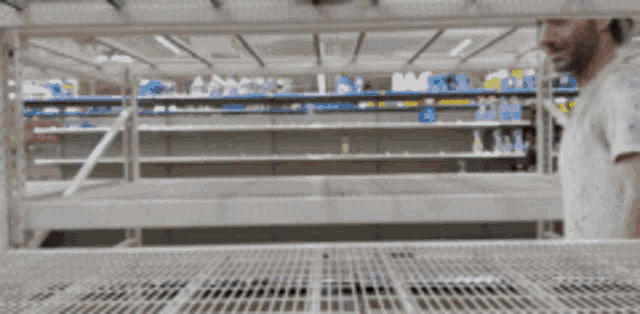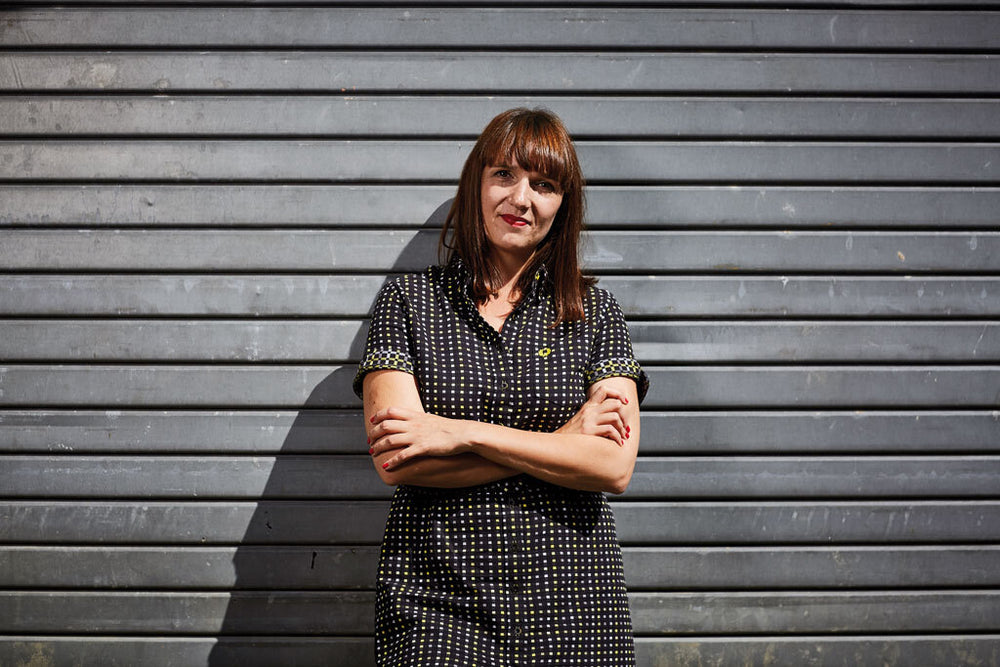By the A64, the town where I grew up sits a mile from the dual carriageway, on either side of the River Wharfe. The bucolic landscape is mostly flat, with quarries, paddocks, oak trees, arable fields, and the occasional red kite flying overhead. It is a town where I spent my formative years, a town with a skyline marked by steaming towers, a town famous for its one and only product: beer.
We moved to Tadcaster in 1979. My father is a native, and worked on a nearby farm, milking cows and running livestock. He also worked as a drayman, delivering beer for one of the breweries. Back then, everyone had some kind of connection to the trade; in a place with three breweries there was no escaping it. Built by the Romans, our small industrial town is renowned for its water, which is filtered through limestone via popplewell springs. Beneath the ground is some of the best water in the country for brewing ale. The first recorded brewery was 1341, since then the industry has thrived, and the town is famous (or infamous) for its often-inebriating nectar.
The smell of the air on brewing days is one which permeates my childhood memories. If I were to design a perfume, it would need to contain this accord. The malt mash was so powerful, so overwhelming, that it seeped into every room in the house, into your clothes, into your hair. A sepia cloud hung over the town after each brew, undulating through the streets. I often complained about the pong, to which my father would reply, ‘Well shut the window then! You better get used to it living round here…’ It was repulsive at the time, but now when I return, I wind down the windows to inhale it. Through my adult nose, there is no finer smell on earth.
At school, it was assumed that pupils from Tadcaster (who were of the lower class, compared to the posh suburban kids from Copmanthorpe and Bishopthorpe) would mostly end up being employed in the brewery trade – either on the production line, deliveries, apprenticeships, or administration. There was little choice or aspiration in terms of what existed beyond its boundary. And for a while, I accepted my lot. After all, I had scant qualifications, and knew few people living a creative life. Like many, I was consigned to the scrapheap at the age of 18. What I didn’t realise was the down-at-heel existence I was experiencing at the time, which comprised of working behind bars at various pubs in town then spending my days off drinking in them too, would come to provide inspiration for years to come. The popplewell is one I still from draw from, the fountain of misery and derangement a permanent source of fascination in my writing. It is my own Llareggub.
Once upon a time, Tadcaster apparently had more pubs per population head than any other town in the country. This was a source of pride, locally. Some were smaller than a living room, others were private members bars for workers, and a few were the sorts of establishments partial to a regular bar room brawl. What united them was the price of beer, which was subsidised at an eye-wateringly low price. In fact, it was probably the cheapest beer in the land. This was long before J D Wetherspoon reared its head. That workers could spend all day drinking on the job, then spend their evening supping what they’d made in the pub, was a celebrated benefit of Tadcaster life in the 20th century. It also meant that the good citizens of our town had a propensity for beer consumption that was unsurpassed. When it came to bravado, it was less about flavour or quality of ale, than it was about volume. A friend of my father’s, who worked on the dray wagons, ate four cooked breakfasts in the transport café every morning, then sank a pint at every drop-off. Upon arriving home, he ate another large dinner, then went to the pub. Every night. He was known as the Man Mountain and had no problem sinking 25 pints daily. ‘Strength goes in through the mouth’ was his mantra. Yes, a candidate for an early death, you may assume, but he lived into his 80s and never gave up the Rothmans, either.
As a little girl, I believed that all men looked like the ones you saw on the street, with bloated crimson faces and large, pregnant bellies as if a barrel was shoved beneath their shirts. ‘All bought and paid for,’ they’d proclaim, with a satisfied smile. Or the classic, ‘I’m still carrying twins, it’s been a few years now.’ Even better was the name of this lesser-spotted condition: the Tad Tumour. It wasn’t until I started pulling pints that I realised the hardest drinkers were often rake-thin with noses like exploded raspberries. You could spot them from the particular walk they had, the ones that looked like they were holding marbles in their underpants or were shaking a trapped sock from their trouser leg on the way home after last orders. Back then, pubs closed from 3pm until 5pm, when the final bell rang and the workers clocked off. That was the quiet period, the Tad Siesta, when all drinking ceased, and the madness paused for a while. After opening the doors, each booth, snug and corner would fill up with the same men who sat in the same place every day and night, as if a slot were allocated for them. Woe betide anyone who dared to sit in their seat. After they died, the seat passed on to their sons, and then their sons after them. Those were the rules of inheritance.
Inside the gates of heaven, the air was always heavy with cigarette and pipe smoke, the copper top tables sticky with ale and the crumpled bun cases of pickled eggs. In those pubs, I witnessed men fighting with ghosts, women being dragged across the floor by their hair, billiard balls being chucked through windowpanes, but more often than not, quiet drinkers resigned to their situation, knowing their place and accepting it. Around town, the ale was always ‘nursed’, not drank. You nurse a pint in Tadcaster, you nurse it tenderly, as if it is going to save you from yourself. There is always love between the drinker and the drink.
As I pulled pints, customers would often say ‘one for yourself.’ At the time, I believed this to be a simple act of generosity, but looking back, I now wonder if they didn’t want to drink alone, or perhaps buying a half for the barmaid absolved them from the guilt of drinking that pint. I was never much of a looker, so I doubt the intention was ever of the carnal nature. What this act did encourage was a capacity for drinking, one which slowly crept up on me without much notice. Where once I drank only a couple of pints throughout the night, I could now drink six pints of Ayinger Bräu without much trouble… and that was during the day. Combined with the local diet of chips and curry sauce with marge in a white bap, or the countless culinary delights from Tadkebab, I quickly accumulated a layer of podge around the midriff, which started to spill over on regular occasions. After looking in the mirror one day, I realised that I was falling into the same helpless hole as the ones I once had mocked. There was no wonder I couldn’t attract a boyfriend with a physique fuelled by a diet of lager and potato.
It was often joked that after brewing, the most thriving business was the funeral director. He was never short of clients. Cirrhosis, coronaries, strokes and copycat suicides kept him in profit, year in, year out. The morgue was a busy place. If you thought the death you’d just heard about in the pub was bad, there was always another just around the corner to surprise you: the one who slit his own throat in a pigpen, the one garrotted by a forklift truck, or the one who threw himself off the viaduct after necking three microdots and 35 pints in one go. These stories were the legends of our town, the people who lived there provided us with enough entertainment to stave the boredom off. In Tadcaster there was no culture aside from our own, one we created and expanded over generations, a culture based on gossip and myth. A culture created on the barstool. There was no truth, only versions of versions. Palimpsests of what once might have happened. It was a typical small town with insular views, wilful ignorance, and mindless violence. But it was also a town with no train station, or late bus in or out of the place. We were all cut off from the wider world. Our only release came from the stories we told each other, or from intoxication and the false promise of the bookmaker’s shop. Some of us were lucky enough to have an imagination, to read books, listen to music, watch films or go out dancing. We were the ones who escaped. In the post-rave comedown, our nickname for the town was Madcaster Beer On, a name stolen from the Happy Mondays.
I finally left Tadcaster at the age of 21 and moved to the city. Yet still, even in the capital I was haunted by the memories of those who no longer existed. Ghosts of the past walked alongside me for many moons. Even now, all these years later, I cannot drink Tadcaster beer without thinking of that time, and of those friends I have lost. If I were to recommend one bottle to sample from my hometown, it would have to be Samuel Smith’s Oatmeal Stout. Although I imbibe infrequently these days, I still return to that drink as a remembrance of things past: it is redolent of kaylied weekends, orange streetlights, family feuds, fogged windows, viaduct snogs, 6am lock-ins, the lost elation of youth. The roasted malt, barley and sugar provides an instant transportation to that time, to the people and songs in the town I often berated, and on a good day, occasionally loved.
Adelle Stripe is the author of Black Teeth and a Brilliant Smile and Ten Thousand Apologies. Her memoir is forthcoming on White Rabbit in 2024.

